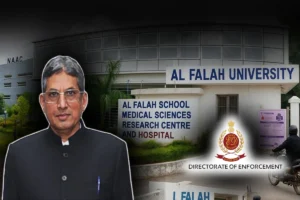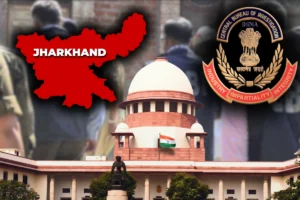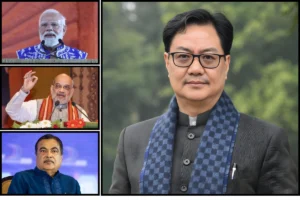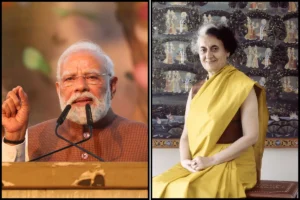
Indresh Kumar, a national executive member of the Rashtriya Swayamsevak Sangh, has provided an in-depth discussion on the country’s development, expanding infrastructure, comprehensive facilities, inflation, and the purchasing power of the people. He states that India has progressed far beyond the era of Gandhi and Nehru, with significant improvements in living standards and infrastructure.
In the last two months, Indresh Kumar has addressed millions across the nation, promoting equality among all religions, women, youth, Muslims, tribals, Dalits, Christians, and others, highlighting revolutionary economic changes driven by government awareness. He has led voter awareness campaigns through eighty-five meetings from Kashmir to Kanyakumari, and from Karnataka to Uttar Pradesh, Punjab, Haryana, Gujarat, Orissa, Maharashtra, Andhra Pradesh, and Madhya Pradesh.
Indresh Kumar emphasized that the identification of historical, religious, and mythological sites has boosted tourism and employment. Government employment has risen from 35 million to 50 million, and non-government employment has increased from 500 million to 800 million. Skill development initiatives have enabled millions of young men and women to pursue self-employment.
Reflecting on the 1950s compared to today, Indresh Kumar noted the dramatic improvement in purchasing power. While once unpaved roads and limited transport options were the norm, today, people can afford various cars, good houses, gold, and luxury items. Villages now boast paved roads, and cities are connected by four to eight-lane highways, with widespread electricity.
Also read: Making Efforts To Provide Relief: CM Sharma Says As Mercury In Rajasthan Surged To 50
The leader highlighted a significant increase in resources for road, rail, metro, and air travel, leading to a surge in tourism domestically and internationally. The increased purchasing capacity of citizens has led to higher tax revenues, enabling greater government investment in development projects. Unlike the era of Rajiv Gandhi, where 85% corruption was admitted, the current government operates with zero tolerance for corruption, ensuring funds are directed towards development.
Indresh Kumar contrasted the past, where electric fans, coolers, and air conditioners have replaced hand-swinging fans, and large LED and smart TVs have supplanted black and white TVs. Societies and apartments now have gensets and solar panels as alternative power sources. The number of All India Institutes of Medical Sciences (AIIMS) has increased from eight to twenty-three, Indian Institutes of Technology (IITs) from seventeen to twenty-three, and Indian Institutes of Management (IIMs) from eleven to twenty-one, all under the leadership of Prime Minister Narendra Modi.
Addressing inflation and purchasing power, Indresh Kumar mentioned that while gold once cost Rs 60 per tola, today it is Rs 74,000, yet people continue to buy jewelry for weddings and other occasions. Seventy years ago, salaries ranged from Rs 60 to Rs 200; now, starting salaries are Rs 10,000, going up to Rs 200,000 to Rs 300,000, reflecting a significant increase in purchasing capacity.
Indresh Kumar credited the rapid growth of India’s economy and development to the BJP-led central government, which operates without scams, bribery, or corruption. He acknowledged that while substantial progress has been made, continuous development and expansion are necessary. For sustained progress, experienced, disciplined, and organized leadership is crucial. He concluded that today’s India is free from fear, hunger, corruption, suicides, and riots, and that the country is on the right path toward a brighter future, with confidence in safe hands ensuring continued development.
To read more such news, download Bharat Express news apps



















